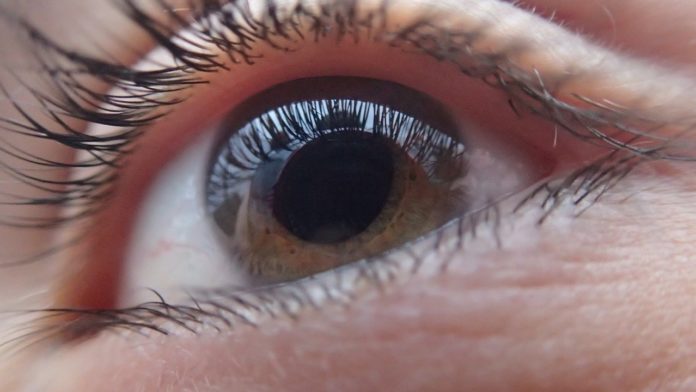Researchers identify new class therapy made from pooled human antibodies for dry eye disease
Researchers have identified the presence of a specific type of autoantibody (antibodies to an individual’s own protein), called anti-citrullinated protein antibodies, or ACPAs, in human tear fluid. A new clinical trial demonstrated that patients with dry eye disease experienced reduced signs and symptoms of the condition in response to an eye drop treatment made from pooled human antibodies that targets ACPAs.
Findings from the early stage clinical trial were reported in the journal The Ocular Surface.
Dry eye disease is caused by abnormalities in the tear fluid and results in dry areas over the cornea, the transparent outer layer of the eye, which can lead to disabling eye pain and sensitivity to light in severe cases.
“The burden of autoimmune dry eye is much greater than just having an occasional feeling of dryness,” said Dr. Sandeep Jain, senior author of the study and UIC professor of ophthalmology and visual sciences at the College of Medicine.
Participants in the trial who used the drops with pooled antibodies reported less eye discomfort and their corneas were healthier
The new eye drops to treat dry eye disease works by preventing eye inflammation.
The drops are formulated using pooled antibodies which are made from immune globulins processed from the donated blood of thousands of individuals, all containing varied types of antibodies. The eye drop countered the negative effects of ACPAs.
This trial compared the antibody-based eye drops with eye drops without the antibodies. Currently available drugs to treat dry eye don’t work for everyone, especially those with severe disease.
Twenty-seven participants with severe dry eye disease participated in the trial. The participants were randomized into two groups. One group was given eye drops made from pooled antibodies and instructed to administer one drop to each eye twice daily for eight weeks. The control group was given the same instructions with eye drops made without antibodies.
Researchers found that people using antibody-based eye drops had a statistically significant and clinically meaningful reduction in corneal damage at eight weeks compared with the control group. In the test group, the amount of pro-inflammatory biomarkers or dry areas – also was reduced on the surface of the eye.
“Participants in the trial who used the drops with pooled antibodies reported less eye discomfort and their corneas were healthier,” Jain said. “The data from this early clinical trial suggests that eye drops containing pooled antibodies may be safe and effective for treating dry eye disease, and we look forward to conducting larger randomized trials to definitively prove its efficacy.”


